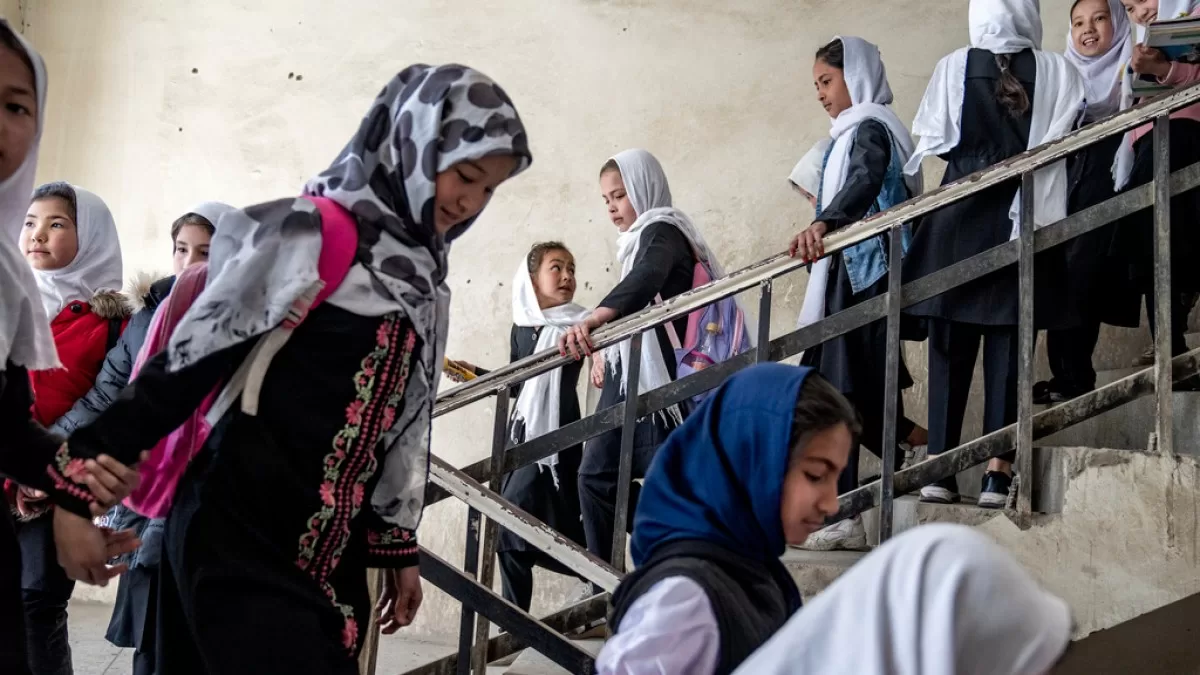As Afghanistan’s rulers mark three years in power, the future of an entire generation of girls is ‘in jeopardy’, UN says.
Afghanistan’s Taliban government has “deliberately deprived” at least 1.4 million girls of their right to an education during its three years in power, according to the United Nations.
About 300,000 more girls are missing out on school since UNESCO last carried out a count in April 2023, it said on Thursday and warned that “the future of an entire generation is now in jeopardy”.
Taking into account the number of girls not going to school before the Taliban came to power in August 2021, the UN’s educational and cultural agency said 80 percent of Afghan school-age girls – a total of 2.5 million – are now being denied their right to an education.
“UNESCO is alarmed by the harmful consequences of this increasingly massive drop-out rate, which could lead to a rise in child labour and early marriage,” it said in a statement.
Afghanistan is the only country in the world to stop girls and women attending secondary schools and universities.
Since the Taliban came to power, it has barred education for girls above sixth grade, arguing that it does not comply with its interpretation of Islam – although no other Muslim country prohibits girls from being educated.
UNESCO Director General Audrey Azoulay urged the international community to remain mobilised “to obtain the unconditional reopening of schools and universities to Afghan girls and women”.
The Taliban administration, which is not recognised by any other country, has imposed restrictions on women that the UN has described as “gender apartheid”.
The number of primary pupils has also fallen. Afghanistan had 5.7 million girls and boys in primary school in 2022, compared with 6.8 million in 2019, UNESCO said.
It blamed the drop on the authorities’ decision to ban female teachers from teaching boys, adding that parents also lacked incentives to send children to school.
Enrollment in higher education in equally concerning, it said, adding that the number of university students had decreased by 53 percent since 2021.
“As a result, the country will rapidly face a shortage of graduates trained for the most highly-skilled jobs, which will only exacerbate development problems,” according to UNESCO.
